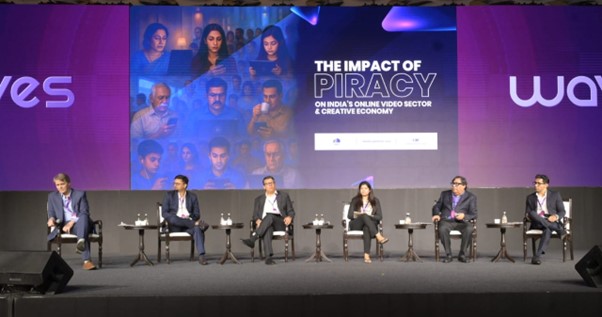
Follow WOWNEWS 24x7 on:
Updated: May 04, 2025 14:50

During the WAVES 2025 conference, policymakers and industry stakeholders sounded alarms on the growing threat of online piracy, urging international cooperation and sophisticated technology to contain the menace. Experts stressed that piracy is now no longer a regional issue but an international cybercrime engaging media, entertainment, and financial industries. Here's the complete rundown:
Key Highlights
Piracy's Economic Impact:
Experts predict that online piracy will cost the industry more than 10% in lost revenue between 2025 and 2029.
Successful anti-piracy enforcement can grow legal video service consumers by 25%, opening up a $0.5 billion boost in content investment.
Transition from Physical to Digital Piracy:
Piracy has moved from physical bootlegging to torrent sites, direct downloads, and social media leaks.
Services such as Telegram have become hotspots for illegal content sharing.
Cybercrime & Financial Fraud Threats:
Piracy is associated with cybercrime, such as ransomware, spyware, and financial fraud.
Between the ages of 18-24, users are especially at risk from pirated content that is malicious in nature.
Industry's Response & Anti-Piracy Measures:
The Telugu film industry has set up a specialized Anti-Piracy Cell and Digital Piracy Team to fight leaks.
Experts suggest AI-powered watermarking, blockchain-based tracking, and increased legal enforcement.
Global Cooperation & Policy Recommendations:
There is a proposal of a centralized anti-piracy task force with global representation.
Governments and streaming companies are called upon to invest in digital surveillance technologies.
Future Perspective:
ISB, in association with CBI and Interpol, is organizing the Digital Piracy Summit on July 9-10 to discuss piracy prevention measures.
Industry captains emphasize that piracy is not only an economic loss but a threat to innovation, investment, and cultural exchange.
This WAVES 2025 discussion brings to the fore the imperative of international collaboration, technological innovation, and enhanced enforcement to safeguard digital content and intellectual property.
Sources: Fortune India, MSN
